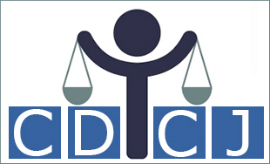On 5 November 2020, the annual forum “Execution of judgments of national courts in Ukraine” (The forum) was organised for the third consecutive year by the Council of Europe project “Further support for the execution by Ukraine of judgments in respect of Article 6 of the European Convention on Human Rights”, which is funded by the Human Rights Trust Fund, and the All-Ukrainian public organisation “Ukrainian Bar Association”.
The forum brought together over 200 project partners and guests, including the President and other judges of the Supreme Court, Deputy Prime Minister and Chair of the Government Commission for the execution of the judgments of the European Court of Human Rights, Chair of the Committee on Legal Policy of the Verkhovna Rada of Ukraine and other members of the Ukrainian parliament, Deputy Minister of Justice of Ukraine – Agent before the European Court of Human Rights and other representatives of the Ministry of Justice of Ukraine, the members of the High Council of Justice, Deputy Head of the State Judicial Administration of Ukraine, the representatives of the Ukrainian Parliament Commissioner for Human Rights, as well as the representatives of civil society and international organisations, namely the USAID New Justice Program, EU Project “Pravo-Justice”, the OSCE Project Coordinator in Ukraine.
Overall, the forum aimed to discuss the major structural problem of non-execution of national judgments (identified in the Yuriy Nikolayevich Ivanov and Burmych judgments of the European Court of Human Rights), as well as measures and priorities to be implemented within the next year for eliminating this problem. This complex issue reveals one of the most important aspects of the serious systemic deficiencies in the functioning of the justice system in Ukraine and, thus, seriously affects the rule of law and access to justice. Therefore, the forum provided an opportunity for representatives of the legislative, executive, and judicial branches, civil society, and international organisations to debate proposals and necessary actions.
The forum was opened by Mr Christos Giakoumopoulos, Director General of Human Rights and Rule of Law of the Council of Europe, who underlined the importance of full-fledged implementation of indispensable general measures to address the problem of non-execution of judgments by all national partners at all levels, who must be genuinely committed to performing their duties under the national and international obligations. The opening remarks were also delivered by key contributors of the Human Rights Trust Fund – Ambassador of the Kingdom of Norway to Ukraine, Mr Erik Svedahl, and Head of the Legal and Consular Department of the German Embassy in Ukraine, Mr Carsten Meyer-Wiefhausen.
Ms Hanne Juncher, Head of Justice and Legal Co-operation Department of the Council of Europe, moderated the first session of the forum about the key developments that have taken place over the past year and steps necessary to take in order to achieve progress towards meeting international obligations and the Council of Europe standards. During this session, Ms Clare Ovey, Deputy Head of the Department for the Execution of Judgments of the European Court of Human Rights, delivered a presentation on the fundamental provisions and principles to be stated in the national strategy aimed at tackling the issue of non-execution of judgments. Also, Mr Pavlo Pushkar, the Head of Division of the Department for the Execution of Judgments of the European Court of Human Rights, pointed out the key requirements for the elaboration and adoption of a comprehensive legislative package as the priority measure requested by the Committee of Ministers of the Council of Europe.
Based on the forum discussions, the recommendations for further necessary measures were developed and later announced by Mr Ivan Lishchyna, the Deputy Minister of Justice of Ukraine – Agent before the European Court of Human Rights. These recommendations will be disseminated to all relevant Ukrainian and international counterparts for their further implementation.
The video from the forum is available on the YouTube channel



